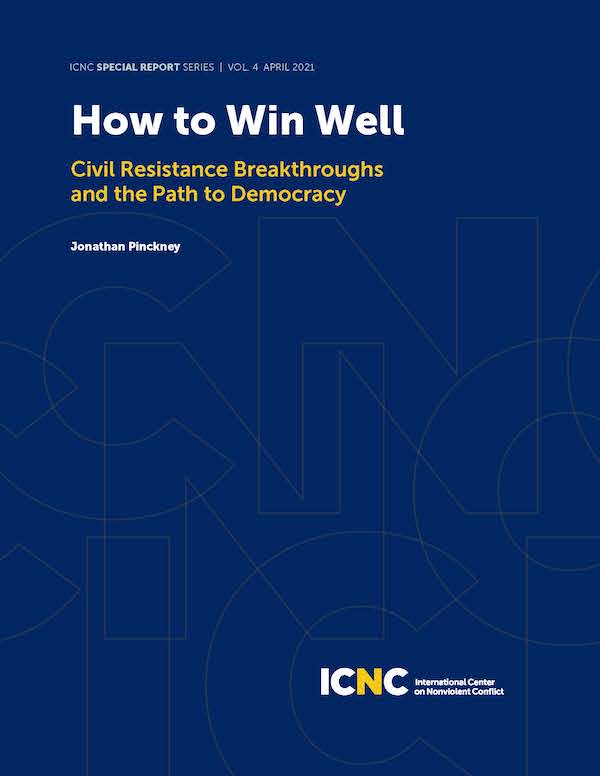By: Jonathan Pinckney
Date of Publication: April 2021
 Free Download
Free Download
Purchase a Print Copy
Purchase e-book (Nook | Kindle)
How do nonviolent resistance movements oust dictators? What effects do these different ways of ousting dictators have on countries’ long-term political trajectories? In this special report, I trace the pathways through which civil resistance movements of the last seventy years have removed dictatorships and the impact of these different pathways on levels of democratic progress. I find that pathways that involve campaign initiative, institutional mechanisms, and building cooperative norms – particularly negotiated transitions – tend to lead to the highest levels of democratic progress.
About the Author:
 Jonathan Pinckney is a Post-Doctoral Research Fellow in the department of Sociology and Political Science at the Norwegian University of Science and Technology and an external associate at the Peace Research Institution of Oslo (PRIO). He researches extra-institutional political contention in non-democracies, with a particular focus on nonviolent civil resistance. Jonathan received his PhD in International Relations from the University of Denver in March 2018, his MA also from the University of Denver in 2014, and his BA in International Affairs from Gordon College in Wenham, Massachusetts in 2008. He was a 2012 recipient of the Korbel School’s Sie Fellowship and a 2016 recipient of the International Center on Nonviolent Conflict’s PhD fellowship.
Jonathan Pinckney is a Post-Doctoral Research Fellow in the department of Sociology and Political Science at the Norwegian University of Science and Technology and an external associate at the Peace Research Institution of Oslo (PRIO). He researches extra-institutional political contention in non-democracies, with a particular focus on nonviolent civil resistance. Jonathan received his PhD in International Relations from the University of Denver in March 2018, his MA also from the University of Denver in 2014, and his BA in International Affairs from Gordon College in Wenham, Massachusetts in 2008. He was a 2012 recipient of the Korbel School’s Sie Fellowship and a 2016 recipient of the International Center on Nonviolent Conflict’s PhD fellowship.